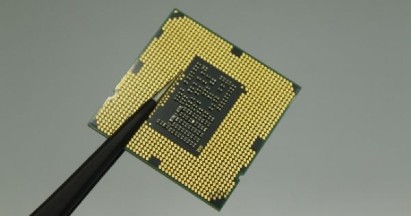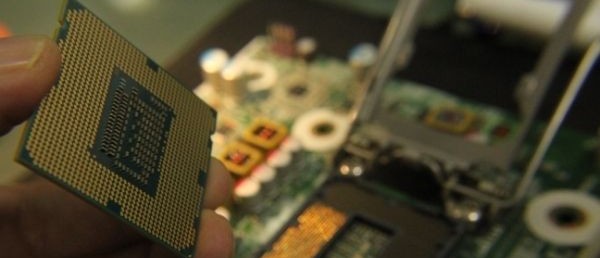If you are thinking about how long does a CPU last or what’s the average lifespan of a processor, we got the answers for you. CPU lifespan lasts for quite a long time – around ten to fifteen years. Some manufacturers claim that the CPU lasts for 1,00,000 hours. But we bet a differ. Why? Read on for full facts and figures.
How Long Does a CPU Last
CPU lifespan largely depends on your usage but there are many other factors you need to consider before making any conclusion. The CPU does millions of calculations daily & it can last for many years. Many still claim that they have machines that are in working condition even after 20 years of age.
We believe that CPU lifespan is much longer than anyone claims & wear and tear is the only reason for CPU to become obsolete.
Thermal plays an important part in your CPU lifespan & only factor which affects it. Thermal cools down your CPU and increases usage lifespan of your CPU. Your daily usage hours and resting time also plays some part in the lifespan of your CPU.
Nowadays thermal comes built into your computers so you don’t have to worry about it compared to computers from the 90’s or early 2000’s.
Average lifespan of a CPU is 10 to 15 years but CPUs last at least for 5 years. To keep your CPU healthy, do quality checks after every few months.

How Long Do Processors Last FAQ
Does a CPU Wear Out
A CPU known as a central processing unit is the heart of any computer. Heat is the primary reason for CPU wear out. Followings are the signs that your CPU wears out and needs replacement.
- Shutting down systems randomly.
- System crashes so often.
- The computer can’t be turned on.
- No screen display even after fan spinning.
- Booting loops for infinite times.
- Posting errors due to a system crash.
- System freezes in the middle.
If you find any of the signs mentioned above, you should run a system check and replace your CPU.
How often should CPU be replaced?
Every two years or if your performance level is not upto the required level then you should replace your CPU. Usually your hardware parts need replacement every four years. Again, it depends on your usage. If you are using it commercially then the cpu needs replacement in two years most of the time. For personal use it can last upto 4-5 years. It is obvious that commercial usage makes wear and tear more often than the personal one.
We recommend doing a system check every three months for your healthy CPU lifespan.
How long does a CPU last for gaming?
After two years of usage your CPU needs replacement, if you are using it for gaming purposes. Usual replacement of your CPU is after four years. But it clearly depends on the PCs you are using and type of hardware it is built with. We can say that PCs can last more than laptops because PC parts are economical to replace incase of damage or accidental breaks.
Performance of your PCs for gaming purposes depends on a few other factors also like, GPU, Motherboard, Power Supply, RAM & Storage.
Can a CPU Last For 20 Years?
Even if a lifespan of silicon transistors is 20 years of a CPU, it lasts 4 years or more practically. That’s because of general wear and tear. We do believe some PCs last for a longer duration and work just fine for many years but performance does get affected over the time period with usage.
If you are using or used PCs for 20 years or so please comment & reply. We are glad to know your experiences with your PCs.
How Much Does Overclocking Shorten CPU Life?
Yes, Overclocking does shorten the lifespan of a CPUbut still can last for 3-5 years. It is hard to measure actual data of CPU lifespanbut many do it for the sake of upgrade options. But keep in mind that many high technology software requirements can’t be matched and many software won’t work even after overclocking and upgrading your operating system.
We recommend replacing your CPU compared with overclocking to upgrade your operating system because the system may crash or become unstable.
How long before a processor becomes obsolete?
Usually, processor lasts for a decade but you need to check after some years of usage. Say, after five years many hardware needs replacement because of wear and tear.
When should you replace the processor?
Our data suggests that you need to change your processor or replace your computer every four years.
Do processors break down often?
Heating is the only reason for processor failures. If you are into 80 degrees Fahrenheit or above & don’t have an effective cooling system then it can happen after long usage.
How can I know my processor is old and needs replacement?
There are three primary signs that your processor needs replacement. These are: you can’t run updates on the latest software, you can’t install the latest version of an operating system, and noises coming out from your computer.
Is the processor upgrade worth it?
Yes, if your processor is showing 90 to 100 and your GPU doesn’t then it’s better that you replace your processor sooner rather than later.
Do processors get slow with time?
Yes, with a period of time and usage processors get slow. Primarily it depends on two factors. First is a dust build up over the period of time on a heatsink and the second is a low quality of thermal used in a processor.
Does heating matter for the lifespan of a processor?
Yes, it is the reason behind the failure of your processor to perform efficiently. Keep your computer room cool and keep your computer cool too. For a better long lifespan of your processor.
Final Words About Average CPU Lifespan
Few still use Core-2-Quad manufactured in the early 2000s without much hassles & AMD CPUs from the 90’s.So, how Long Does Your CPU Last? It depends on which CPU you use but usually the CPU lasts for 5 to 10 years as per AMD & Intel data statements. Factors such as commercial or personal use also have a role in the lifespan of a CPU.
As technology evolves so does the usage. So, what’s the average lifespan of a processor? Say, after five years or so your processor tends to get slow due to wear and tear. Heat is another main reason your processor’s lifespan gets shortened. If the quality of thermal in a CPU is good then it can increase the lifespan of a CPU.
We recommend doing quality checks every few months or if you face any failure or crash issues while using your PCs. It can help you to save extra cost afterward and also save you from losing your valuable data all of a sudden. We do recommend not to overclock your CPU & recommend changing your CPU instead. You can do overclocking only if required & given by an expert opinion of a technician.
Table of Contents

